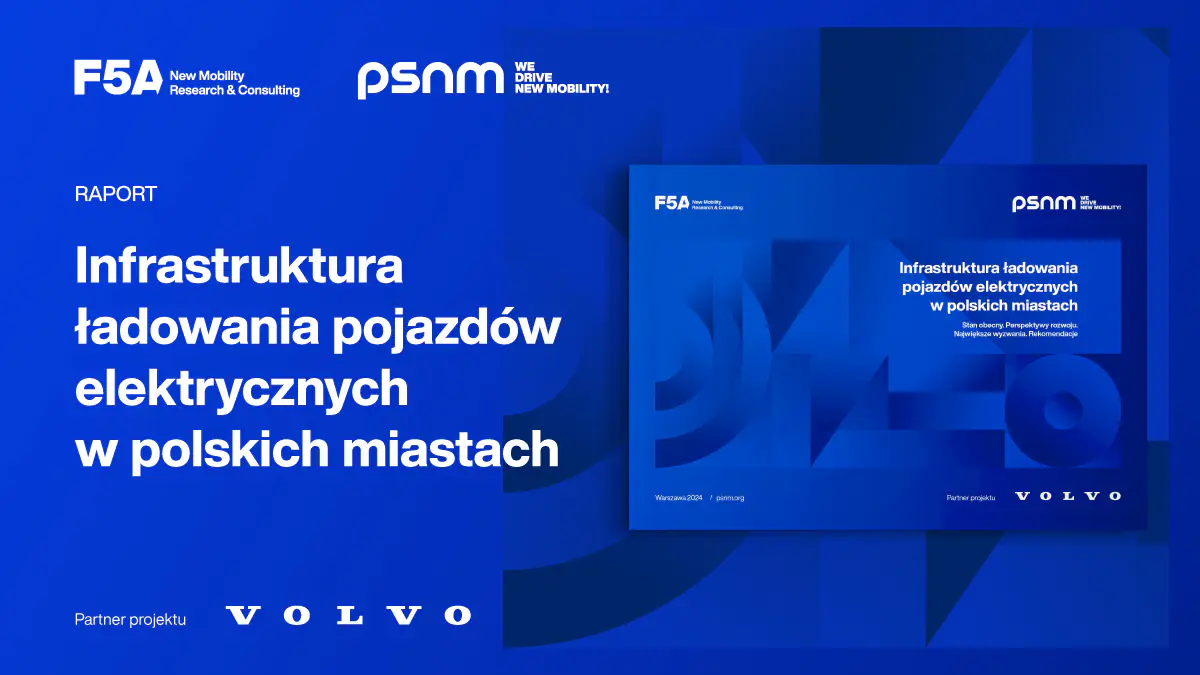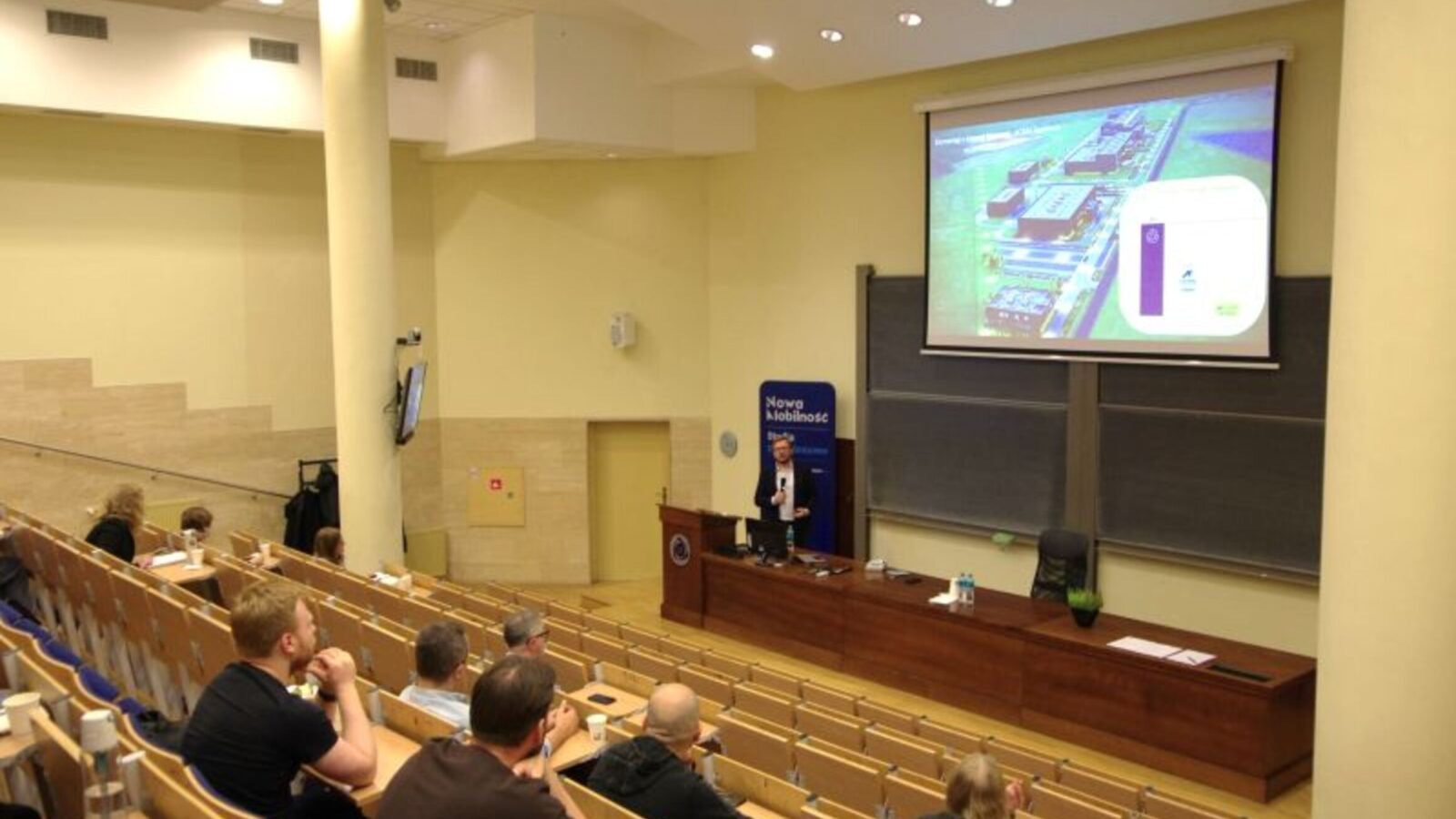-
Even hundreds of times difference can exist in land lease rates for charging stations across various Polish cities. As a result, annual lease costs range from 50 PLN to nearly 20,000 PLN.
-
Consequently, electric vehicle infrastructure in Poland is developing too slowly — more than three years after the deadline set in the Act on Electromobility, the obligations regarding the minimum number of charging points have not been met in almost half of the obligated municipalities.
-
The current market situation, major challenges, and recommendations for expanding publicly accessible charging stations in Polish cities are described in the latest substantive report, which PSNM prepared in collaboration with Volvo Cars Poland.
Cities are currently driving the Polish electromobility market. Nearly three-quarters of electric vehicles in Poland are registered in municipalities with more than 50,000 residents. At the same time, 37 of the largest cities, each with over 100,000 inhabitants, host as much as 56% of all publicly accessible charging stations in Poland. Theoretically, this is a very good result, but in practice, the expansion of electric vehicle infrastructure in Polish urban centers faces numerous serious obstacles.
– Regardless of sector-wide grid connection challenges, the biggest barriers include very lengthy approval procedures, architectural requirements that do not reflect market realities (practically preventing the installation of DC stations in some cities), and highly variable land lease rates. As a result, in 19 of the 37 largest Polish cities, the share of publicly accessible fast DC charging points does not exceed 20%, and in 11 of these cities, the number of publicly accessible DC points does not surpass 10 – says Jan Wiśniewski, Director of the PSNM Research and Analysis Center.
PSNM points out that a symbolic example in this context is the implementation of obligations under Article 60 of the Act on Electromobility and Alternative Fuels. According to this regulation, by March 2021, a specified minimum number of publicly accessible charging points should have been operational in the largest Polish municipalities. However, as of mid-2024 — over three years past the statutory deadline — these obligations were met in only 20 of the 37 municipalities. Even worse is the fulfillment of goals under EU regulations: according to the AFIR Regulation, by the end of 2025, charging infrastructure for electric heavy-duty vehicles should exist in 30 urban nodes in Poland. Currently, none of the required stations are present in any Polish city.
To identify procedural and cost differences across Polish cities that directly impact infrastructure investment, PSNM, in cooperation with Volvo Cars Poland, initiated a unique project involving both municipalities and leading charging station operators.
– The project was carried out in multiple stages, with the active participation of more than 20 cities associated with the PSNM Municipal Committee. We also engaged several operators of publicly accessible charging stations. As a result, we collected a rich database that allowed a comprehensive comparison of the administrative and financial conditions under which electric vehicle infrastructure is being built in different cities. Special attention was given to land lease rates for charging stations, both within and outside roadways. The findings of the project were presented in a substantive report – says Agata Wiśniewska-Mazur, Coordinator of the PSNM Municipal Committee.
PSNM’s report shows significant disparities in land lease rates for charging stations across Polish cities. Including additional parking fees, annual net lease costs (for 1 m² for the station and 36 m² for EV parking spaces) can range from 50 PLN (Rzeszów) to 18,542 PLN (Szczecin). As a result, the lowest annual lease costs are 371 times lower than the highest. For sites outside roadways, annual net lease costs range from 156.60 PLN (Kielce) to 11,052 PLN (Sopot), making the lowest costs 83 times lower than the highest.
– Excessively high lease rates in some cities, from the perspective of operators, are among the greatest barriers to expanding urban charging infrastructure, making it practically impossible to recoup investments. Publicly accessible stations are absolutely essential to encourage more urban residents — many of whom do not have access to private charging points — to adopt electric vehicles in the coming years. Therefore, through our project, in collaboration with leading charging station operators, we prepared a set of recommendations whose implementation by municipalities could significantly accelerate the expansion of electric vehicle infrastructure – says Aleksander Rajch, Member of the PSNM Board.
PSNM’s recommendations include establishing specialized authorities responsible for charging infrastructure, introducing a “single-window” principle, standardizing and adjusting land lease rates for charging stations to match e-mobility market conditions, and extending lease periods (currently, many cities offer only 3-year leases, which practically prevents investment recovery). PSNM also recommends adapting architectural or design requirements to e-mobility products and providing public information on lease procedures for charging station sites or launching a dedicated hotline (similar practices have already been implemented in some cities, e.g., Poznań and Gdańsk).
– The transition from combustion engine transport to electric is a long journey, and one of the most important elements is developing vehicle charging infrastructure. In Poland, the problem is not only the insufficient number of fast chargers but also the low network density. Low-power points and “white spots” on the charging map create insurmountable obstacles for people planning long-distance EV trips. Zero-emission transport reduces harmful gas emissions, improving air quality and overall quality of life for Poles. To encourage drivers to switch from combustion cars to EVs, the charging experience should feel similar to visiting a fuel station. Drivers need the perspective of fast charging — around 20 minutes to 70–80% — in convenient locations. Currently, Poland has only about 300 fast chargers above 150 kW, 38 of which were installed by Volvo dealers. By the end of next year, we plan to add another 100 – says Emil Dembiński, Managing Director of Volvo Car Poland.
The full PSNM report is available at:



